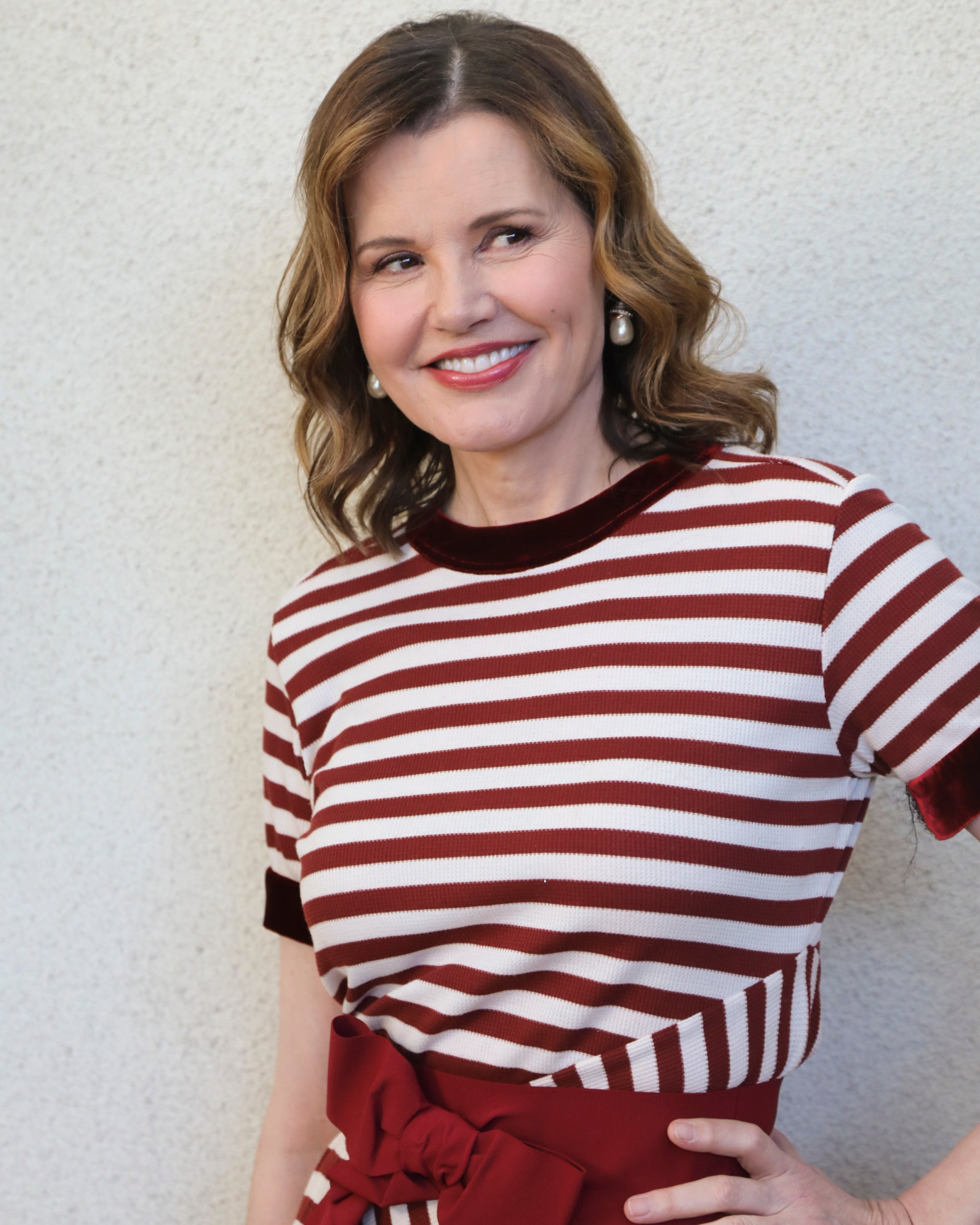
- Interviews
HFPA in Conversation: Geena Davis and the Theory Of Change
Equal screen time. That has been Geena Davis’ goal even before she founded the Geena Davis Institute on Gender in Media in 2004. In the last 15 years, she has been researching gender representation in media and advocating for equal representation of women. “This is a subject matter that’s fascinated me for the last couple of decades at least as a female actor in this industry. The representation of women in Hollywood or let’s say the lack of representation both on screen and behind the camera. How that happens and why it persists and how deep it goes. I think what this enlightens for everybody is how all-pervasive this problem is and how long it’s been going on and how little improvement there’s been,” she tells HFPA journalist Scott Orlin.
The ’30s and ’40s were the heydays for female actors – even though ageism and sexism were rampant back then too. But the research shows that the ratio of male to female characters in film has been pretty much exactly the same since 1946.
“When the war was over the men came back and the jobs were given back to men. And I think that happened in film as well. That all these incredibly great roles that were around for women dried up and we’ve never recovered, we’ve never gotten better again. We’ll talk about that I’m sure but I do think we’re on the cusp of a big change.”
The Golden Globe-winning actress has found that much of these decisions are completely unconscious. “Before I had the data that showed exactly what was happening on screen content creators were very confident that they were doing right by women, that we were pretty much in very good shape, that things had changed dramatically. That was very common that people thought if there was a problem it certainly doesn’t exist now. And it wasn’t until I had the data to show them that it was entirely not true that things had profoundly not changed, that they were able to see it and then be inspired to make the change.”
Her work at the institute led her to be the executive producer of the documentary This Changes Everything. “The director Tom Donahue had been working on it for at least a year, maybe it was two years already. Then he heard about the work that I’d been doing with my research institute and got in touch and talked to me about could I come on board as an executive producer and be a part of it. So I jumped at the chance.”
Davis has been linked to change many times. “When Thelma & Louise came out it got a big reaction in the press and the overwhelming mantra seemed to be this changes everything. Now we are going to see so many movies starring female characters, female buddy pictures and maybe female road pictures, female action movies, whatever. And I was thrilled and excited, yay, can’t wait, I’m in a movie that changes everything, this is fabulous.”
A comparable thing happened when she did A League of Their Own. Again the press was announcing this changes everything. “I’m a boy, I can’t wait, I’m just a part of this whole big change that’s happening and waiting patiently for it to start happening and nothing much has happened.”
She noticed that every five years a movie would come out that would change everything. Well, at least one thing has changed – her answer to the question: Do you think things are getting better for women in Hollywood? “First I would say, well it sure seems like it yeah. Then more time goes by and I’m seeing things are just not changing. And I started saying, I’m not sure. And then I finally started saying, you know what? Google it, I don’t know, I don’t think so, but find out, see if somebody has the data, it doesn’t seem like it. So now I have the data actually so I know that it hasn’t happened yet.”
Listen to the podcast and learn who gave her the name Geena; what was her childhood like; why she played the organ; why she didn’t go to prom; why a year in Sweden changed her life; why would she like to do a Swedish film; why was her aunt important to her; what was her first acting job; why a photo in a Victoria’s Secret catalog helped her get a role in TootsieThe FlyThe Accidental TouristSusan Sarandon Commander in Chief opened her eyes; how her daughter made her an activist; what criteria a film has to meet to be screened at Geena Davis’ Bentonville Film Festival and what is her elbow trick.

